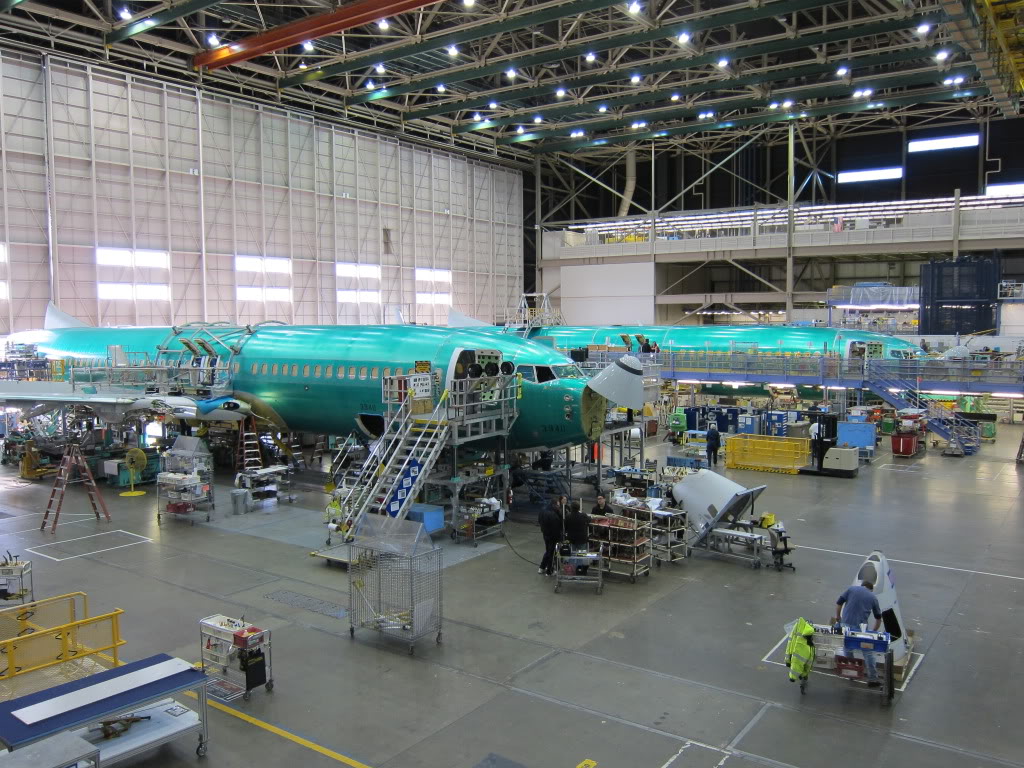News and notes from around the interweb:
- Given issues Boeing has with outsourcing this seems timely, how Airbus handles ‘traveled work’

- A Chinese airline warned passengers not to throw coins into plane engines after an Airbus A350 was delayed for 4 hours
Visuals of a confused cabin from a parked China Southern Airlines aircraft operating flight CZ8805 from Sanya (ZJSY) to Beijing (ZBAA) Daxing because a passenger took the opportunity to throw six coins into the engine on March 6, 2024.
亡者农药#aircraft #travel pic.twitter.com/Vuj6sPh33N
— FL360aero (@fl360aero) March 10, 2024
- Remember all those headlines about record consumer credit card debt? Yeah, not adjusted for inflation. All numbers are bigger these days. Some important context. I explained this to y’all over the summer.
Credit card debt as a percent of personal income is still below pre-pandemic levels pic.twitter.com/A5iIWya5Ei
— Jeremy 'adjusted for inflation' Horpedahl (@jmhorp) March 11, 2024
- Ukraine Begins Negotiations To Resume International Flights
- Air New Zealand Suspends Chicago ORD Due to Engine Shortage
- Chinese airlines are looking to add odd routes Xiamen Airlines plans Fozhou – New York JFK – Ürümqi – Fozhou twice weekly.


So , the Chinese throw coins into aircraft engines ? That is as moronic as having an open border into the U.S. We are on our way downwards , people .
The US doesn’t have an open border. We increasingly have a more closed border with more and more advanced electronic surveillance of the borders but with people still crossing irregularly without prior authorization. Just as has been going on before and ever after Christopher Colombus and other Europeans of the 15th century and later invaded the Americas without prior authorization and unanimous approval of the “brown” people indigenous to these parts.
Even the US-Canadian border and the US borders on the Atlantic and Pacific coasts are increasingly subject to advanced electronic surveillance and related controls. If anything, all these “MAGA” “freedom-lovers” are complicit too in making the country get closer and closer to being a prison-fortress with less and less privacy and less and less traditional freedom.
So, just make a gate announcement NOT to throw coins into the engine or VERY bad luck will come their way.
How hard is that?
Airbus has built its production model from the beginning around building sub-components in multiple sites and putting it all together in one or more factories.
Airbus figured this out years ago.
No company that wants to surve can allow poor performance anywhere along the supply chain to make its way into the final product.
Fuzhou (not Fozhou) to/from New York is actually a very popular route and Xiamen Airlines was flying it pre-COVID. There is an enormous Fujian community in NYC and other parts of the northeast. Prior to Xiamen Airlines getting into the market, Cathay Pacific was carrying hundreds of passengers per day to Fuzhou. The connecting Dragonair flights from Hong Kong to Fuzhou were mostly full of JFK transit passengers. Ürümqi, now that part IS odd.
@Sofia … suggestion : “Fuzhouian” , not “Fujian” , nor “Fuzijian” . “Fuzhouian” .
The NYC diaspora includes people from all over Fujian, not just the city of Fuzhou, so perhaps the proper demonym is Fujianese. URC will not have traffic rights, its just a technical stop as they are flying the whole route eastbound and don’t have the range for JFK-FOC overflying Europe nonstop. The latest Chinese frequency additions cannot use Russian airspace (even Chinese carriers) so longer routes are necessary.
It is usually an A321 on the coins in the engine route. Airbus will have to reengineer all aircraft. When COMAC builds engines in the future, they will have to design for this. Meanwhile, jet bridges could solve this problem. I suppose another way is to have coverings over the engines and even another way would to be to set up a tent style tunnel to the boarding stairs. I just boarded an AirAsia DMK to PNH flight by stairs on Tuesday so I know that they are still used. I don’t remember boarding a twin aisle airplane by stairs.